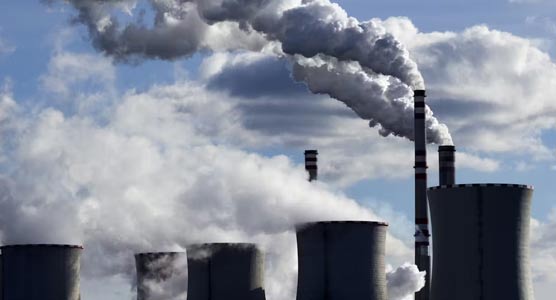Carbon Capture and Storage
The Government's new committment to throwing Billions to Oil and Gas companies towards a Carbon Capture and Storage scheme and for Blue Hydrogen production is a Fiscal Nightmare that will lock in high emissions and fossil fuel dependency for decades to come. That's why the oil and gas industry have been intensively lobbying for it. This technology is supposed to catch greenhouse gas emissions before they can enter the atmosphere. But it is incredibly expensive, has never worked at the necessary scale and, until now, has largely been a ruse for the petroleum industry to continue pumping.
2024-10-20

After intensive lobbying by the oil and gas industry that has unprecedented access to Government ministers, Chancellor Rachel Reeves has announced spending of almost £22 Billion (over a 25 year period) on Carbon Capture and Storage (CCS) projects. The public money, our money, is to be paid to three giant oil and gas companies (BP, Equinor, and Eni) that in the one year 2022 – 2023 made almost £100 Billion profits between them.
So far CCS technology has devoured public funds, only to release more emissions than it has removed. Moreover, carbon “storage” methods are unproven and unpredictable. There's no guarantee that all that carbon will stay put - plus the process creates all kinds of harms and risks. It is also incredibly energy intensive. The captured Carbon Dioxide is compressed and pushed under high pressure through pipelines to be stored in caverns underground. Globally 80% of the CO2 captured at CCS facilities is then used to extract more oil through “enhanced oil recovery,” worsening the climate crisis. The secretary-general of the United Nations called out the use of CCS by fossil fuel companies as greenwashing and the executive director of the IEA (International Energy Authority) recently implored companies to abandon the 'illusion' that CCS is the solution.
What is Reeve’s excuse for committing this huge funding? It stimulates industry and creates jobs – 4000 jobs at over £5 million pounds each! Is there really nothing better to spend £21.7 billion on? Insulating homes? Replacing gas boilers? Expanding public transport? They’d all create more jobs, lower energy usage, put money in our pockets, and reduce emissions. Unfortunately all the small local firms involved don’t have the lobbying power of BP, Equinor or Eni.
Yes, we do need to have enhanced Carbon Capture and Storage but this is best done by improving Natural Carbon sinks. The ocean is the world's largest carbon sink, absorbing around 25% of carbon dioxide emissions from human activities and also capturing 90% of the excess heat generated by these emissions. The result is warm acidic water (a bad thing). We naturally think about planting trees to capture CO2 but actually a greater impact would come from planting sea grass meadows and kelp forests, and restoring our wetlands of which UK is particularly well endowed (For example, the meres and mosses of the north-west Midlands form a nationally and internationally important series of open water and peatland sites). There is huge potential too for storing carbon in our soils. Currently mainstream farming practices deplete our soils but this could be turned around using Regenerative techniques that concentrate on improving soil's organic structure. We recently watched the film “Six Inches of Soil” (shown at Fairfield Flicks) that explains the multiple benefits of this approach to create a resilient system. So what would it take to transform agricultural practices? – perhaps a modest injection of Government cash.
Do please also read George Monbiot's Labour’s carbon-capture scheme will be Starmer’s white elephant: a terrible mistake costing billions that describes how £21.7 Billion is just the start.